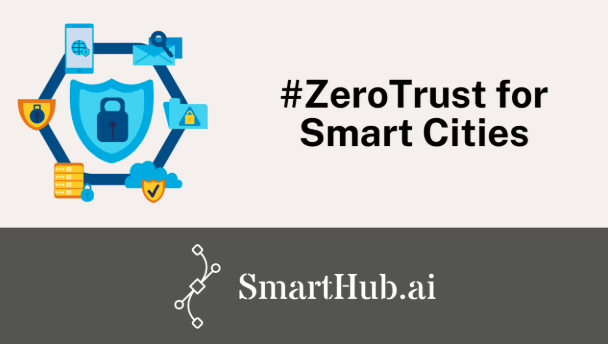A Security Model for today’s vulnerable landscape
As cities are getting evolved into smart cities, cybersecurity threats and their various approaches are evolving at a greater pace. Addressing these challenges need the ZeroTrust security model. It offers a proactive approach that can significantly enhance the security posture of smart cities.
What is Zero Trust?
Zero Trust is a security framework grounded in the idea of “never trust, always verify.” Unlike conventional security approaches that rely on predefined trust boundaries, Zero Trust assumes that potential threats can originate from anywhere, both inside and outside the network. To mitigate risks, it enforces ongoing authentication and authorization for all users, devices, and applications attempting to access resources, regardless of their physical or network location.
Challenges facing Smart Cities
Smart cities have a multitude of interconnected devices and systems, including IoT sensors, devices, cameras, etc. This complex ecosystem presents several security challenges:
- The proliferation of IoT devices expands the attack surface, providing more entry points for cyber attackers to exploit.
- Vast amount of sensitive data generated raise concerns about privacy and data protection.
- Heterogeneous networks and devices pose significant challenges in maintaining visibility and control over all assets.
- Many cities have legacy infrastructure integrated with modern systems, creating compatibility issues and potential vulnerabilities.
Implementing Zero Trust in Smart Cities
Smart cities can adopt the following strategies to implement the Zero Trust model effectively:
- Advanced monitoring and analytics tools help gain real-time visibility into network activities. This enables rapid detection and response to suspicious behaviour.
- Integrating security measures from the outset in the design and development of smart city infrastructure and applications is essential. This includes implementing encryption, secure protocols, and conducting regular security assessments.
- Collaborating with government, technology vendors, and cybersecurity experts provides threat intelligence and best practices for securing smart city environments.
By embracing the Zero Trust model, smart cities can strengthen their cybersecurity defenses and mitigate the risks associated with digital transformation. However, implementing Zero Trust requires an integrated approach, combining technology, policies, and collaboration to safeguard critical infrastructure and protect citizen data. As smart cities continue to evolve, prioritizing cybersecurity will be essential to ensure the resilience and sustainability of urban environments in the digital age.










